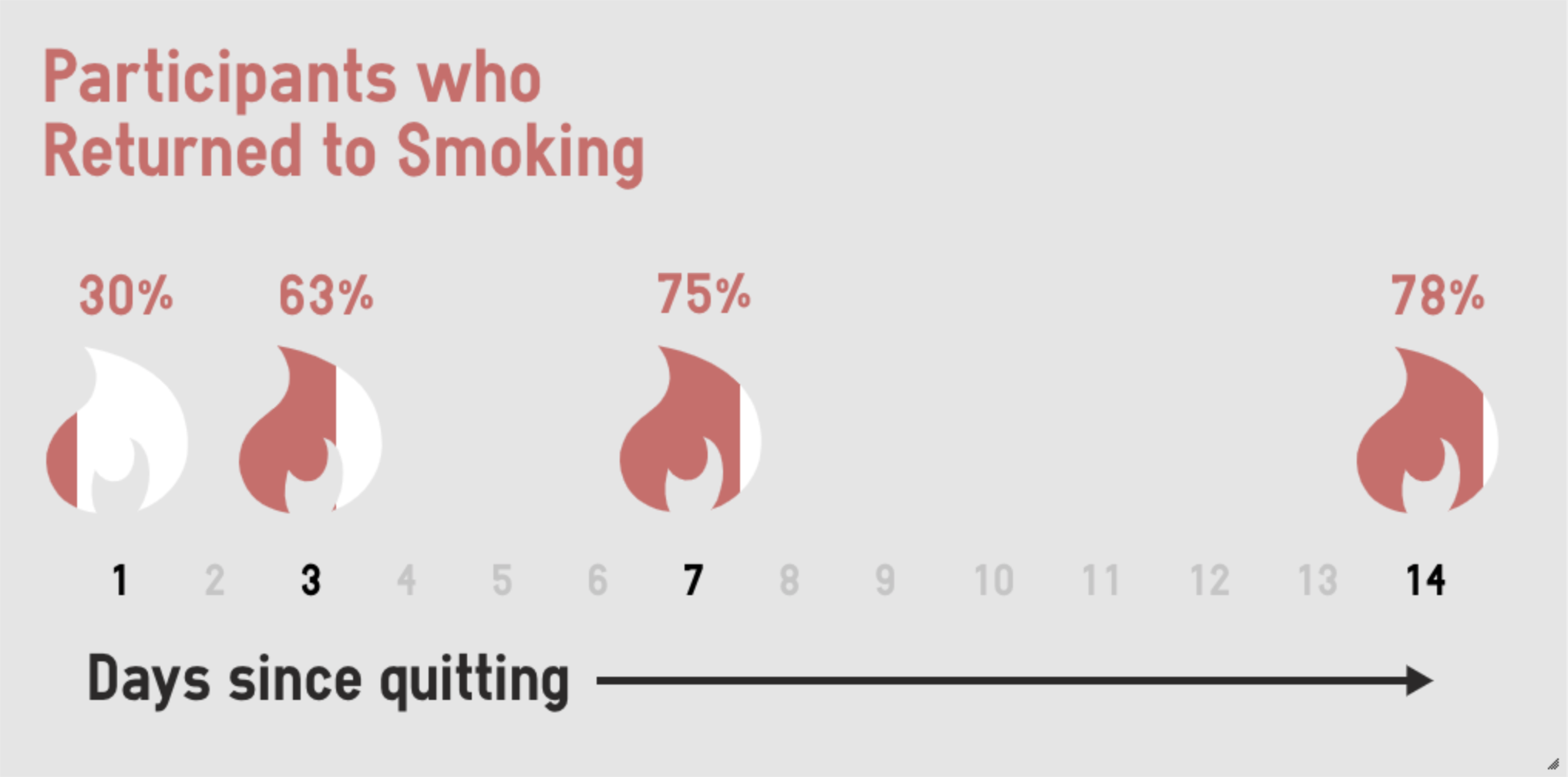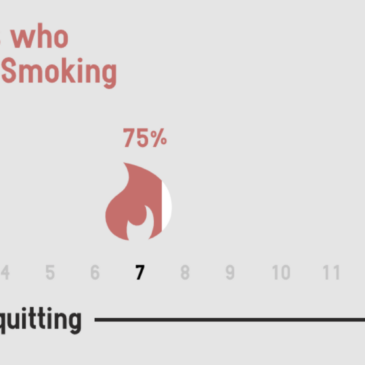Many people successfully quit smoking on their own, but this might be difficult for individuals who have high anxiety sensitivity. People who have high anxiety sensitivity fear the bodily sensations associated with anxiety — for example, they might interpret their pounding heart as a sign of a heart-attack. These individuals might be more likely to return to smoking in order to deal with negative affect.1 This week, as part of our Special Series on Self-Directed Recovery, ASHES covers a study by Kirsten Langdon and colleagues that investigated the influence of anxiety sensitivity and negative affect on people who are attempting to quit smoking on their own.
What was the research question?
How do anxiety sensitivity and negative affect influence the success of an unaided smoking quit attempt?
What did the researchers do?
Fifty-four people who were interested in quitting smoking on their own took part in this study. Before each person’s quit-date, each individual completed a questionnaire that measured their anxiety sensitivity.2 Beginning on the first day of their quit attempt, each person received a palm pilot device. This device prompted the person to record their current affect3 and whether they had smoked since the last time they had been asked about it, three times a day for the first 14 days of the quit attempt. The researchers used multi-level statistical models to analyze the results.
What did they find?
Thirty percent of participants smoked at least once within the first day of their quit attempt, and overall 78% of participants smoked at least once within the 14 days of the study (see figure). Individuals who had high anxiety sensitivity before quitting were especially likely to have high negative affect during their entire quit attempt. These people also reported statistically significant increases in negative affect on days that they returned to smoking, in comparison to days when they were able to abstain. This relationship went both ways — people high in anxiety sensitivity were also more likely to smoke on days that they experienced an increase in negative affect. There was no relationship between returning to smoking and negative affect among people who were low in anxiety sensitivity.
 Figure. Most participants who returned to smoking did so within the first few days of their quit attempt. Nearly all of the people who made it through the first week without smoking also made it through the second week without smoking. Click image to enlarge.
Figure. Most participants who returned to smoking did so within the first few days of their quit attempt. Nearly all of the people who made it through the first week without smoking also made it through the second week without smoking. Click image to enlarge.
Why do these findings matter?
People who have high anxiety sensitivity might have a harder time quitting smoking on their own. They are more likely to smoke to cope with negative mood states while quitting, but resuming smoking itself might also lead to negative mood, thus further decreasing their ability to quit and creating a vicious cycle. Therefore, these people might wish to take steps to reduce their anxiety sensitivity, such as by taking up exercise, before attempting to quit smoking.
Every study has limitations. What are the limitations in this study?
The researchers only measured participants’ anxiety sensitivity at the beginning of the study. It is possible for participants to have become more or less sensitive to anxiety throughout the course of the quit attempt.
For more information:
Your First Step to Change: Smoking is a free online resource for those who are concerned about their tobacco use. For additional tools, please visit the BASIS Addiction Resources page.
— Rhiannon Chou Wiley
What do you think? Please use the comment link below to provide feedback on this article.
________________
1 Negative mood states, such as anger, sadness, disgust, or guilt.
2 Measured by the Anxiety Sensitivity Index-3. This scale asks participants to rate their level of agreement on a scale of 0 to 4 for statements such as “It scares me when my heart beats rapidly.”
3 Measured by the negative affect subscale of the Positive and Negative Affect Schedule.




